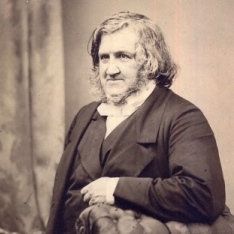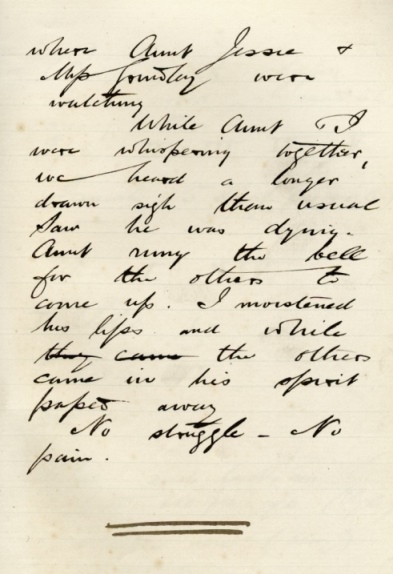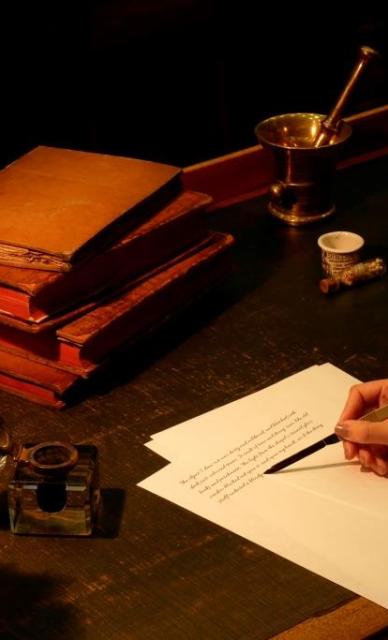Physicians' Gallery Newsletter
Updates on upcoming events, exhibitions and online stories
Empowering medical excellence, shaping healthcare futures.
A lost diary which was discovered in a charity bookshop in Edinburgh is now part of the College Library. It describes the last days of one of the most famous physicians of the nineteenth century, Sir James Young Simpson.

James Young Simpson was Professor of Midwifery at Edinburgh for over 30 years, and President of the Royal College of Physicians of Edinburgh from 1850 to 1852. Although one of the founders of modern obstetrics and gynaecology, he is most popularly known for his application of chloroform as an anaesthetic.
The diary, written by his nephew Robert Simpson, describes the great physician's illness and declining health during the two months leading up to his death in 1870. Although it was used in the preparation of a biography of Sir James published in 1873, its whereabouts had been unknown for over 130 years. It was discovered in August 2006 among a bundle of miscellaneous books handed in by an anonymous donor to the Shelter charity bookshop in Stockbridge, Edinburgh. The manager, recognising its possible importance, contacted the College Library, and it now forms a valuable addition to the Simpson Collection bequeathed to the College in 1916.

The diary gives a touching account of the last two months of Simpson’s life. It outlines the onset of his illness, visits from his family and friends, what books he liked read to him, and near the end, describes how his elder brother sat through the night cradling him in his arms. ‘It was most touching to see the elder brother –14 years older than the younger, and who had watched his progress with such fond affection – watching by the death bed. “Oh Sandy, Sandy,” uncle repeatedly said showing he knew who was beside him.’ The final entry reads: ‘I moistened his lips, and while the others came in his spirit passed away. No struggle – no pain.’
Simpson’s contribution to medicine made him one of the most famous men of his time, receiving honours from all over the world. The day of his funeral was declared a day of public mourning in Edinburgh. Many shops and businesses closed, and two thousand people followed his hearse through streets lined by over thirty thousand mourners.

Updates on upcoming events, exhibitions and online stories